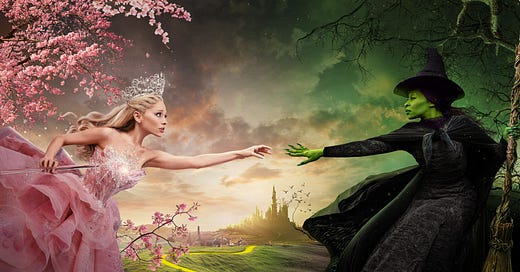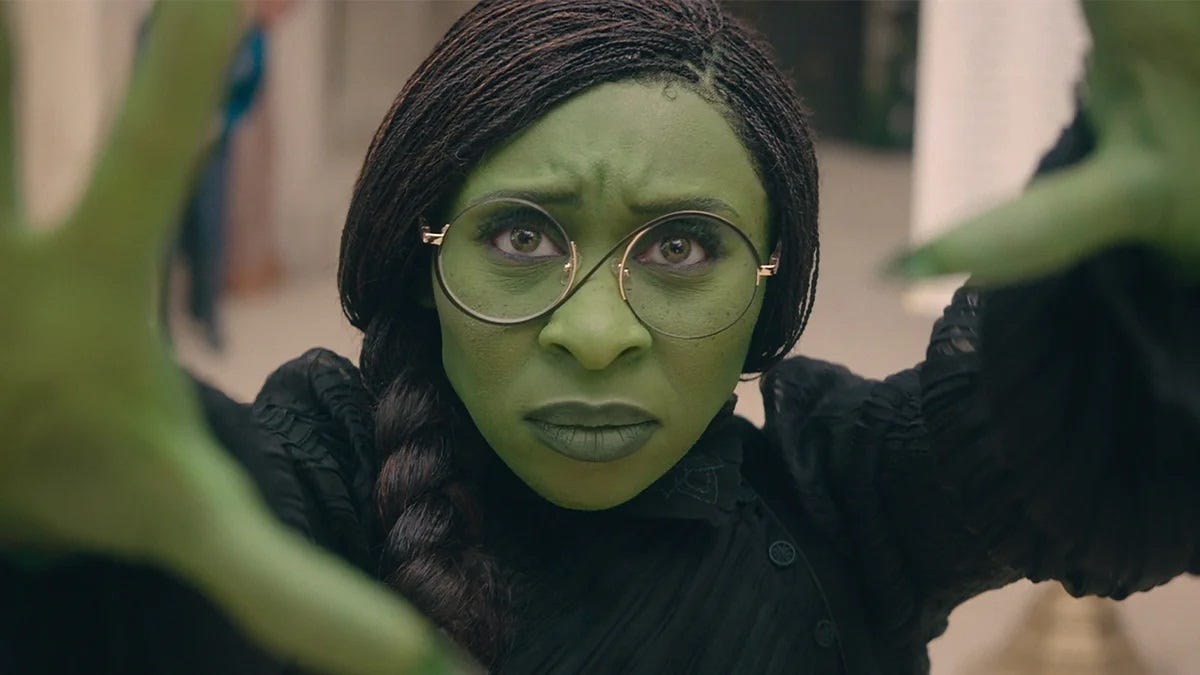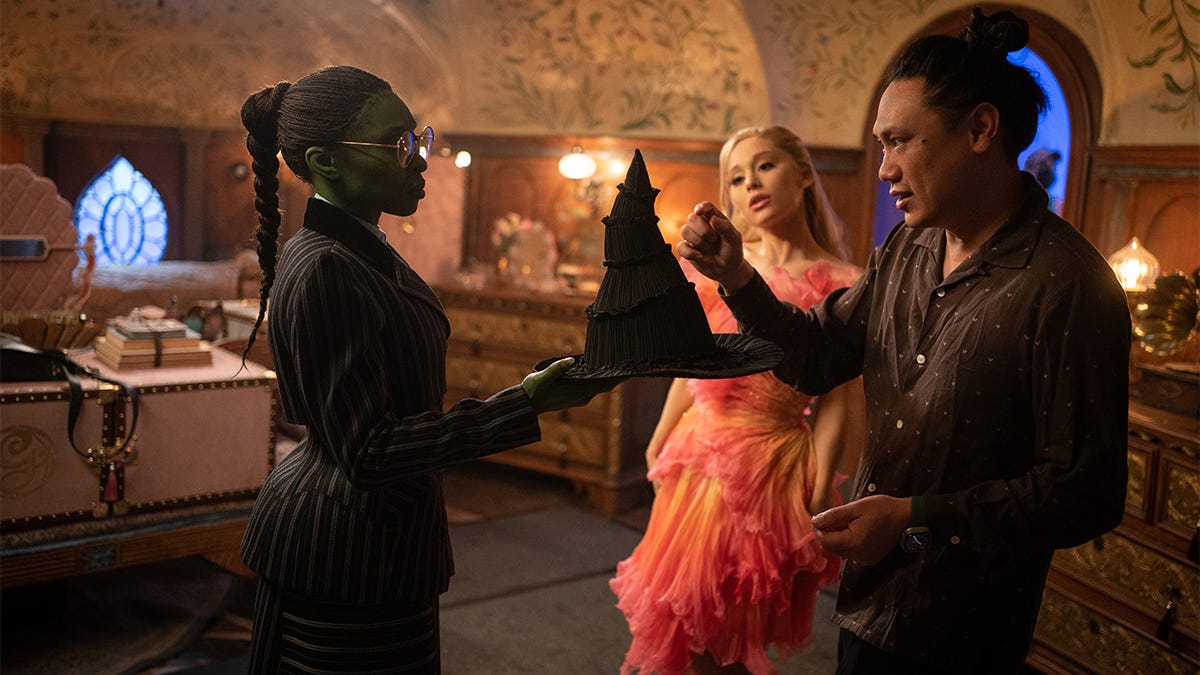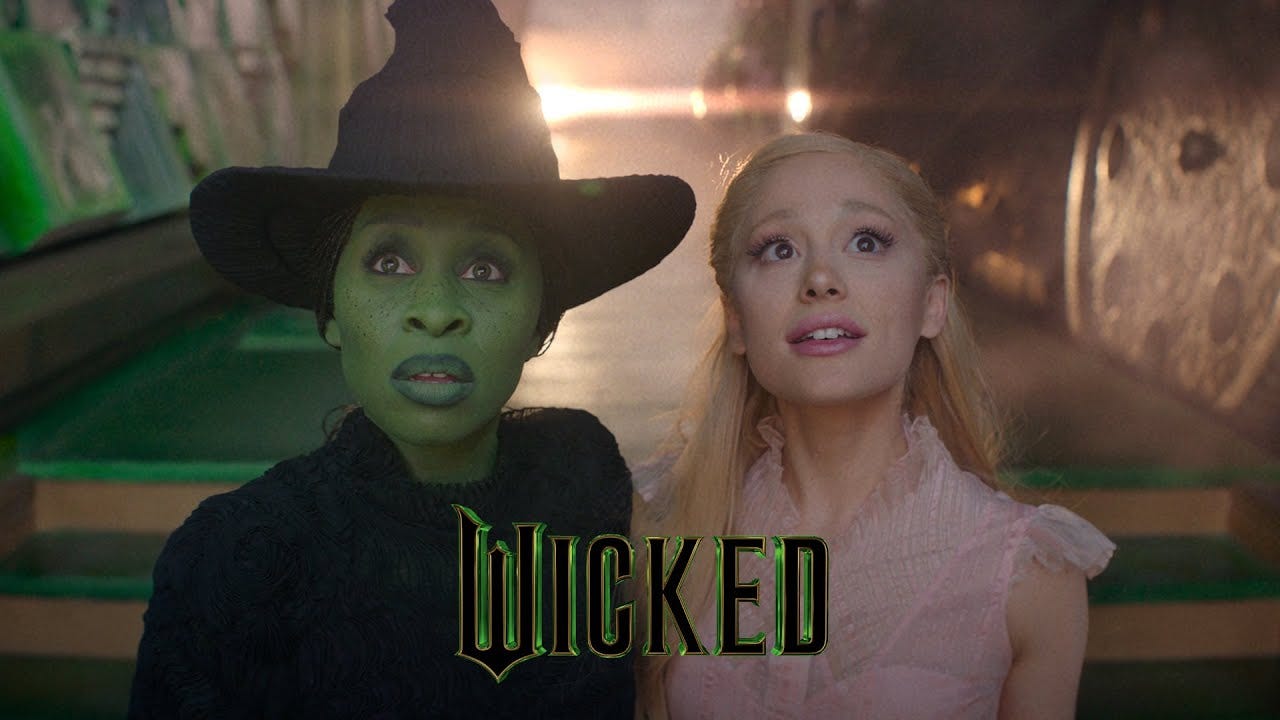[Thank you for reading David’s Folly, a place where I expand my coverage of the art and entertainment industry beyond my regular work in video games into movies, TV, books, theatre, and music. This post is free, so please feel free to share it with a friend, and if you like you can help support my work further by subscribing.]
I think it’s understandable to be a skeptic when someone is trying to sell you on a movie musical. They’re difficult projects to pull off, there are far more bad ones out there than good ones, and if you’re a musical theatre kid (like myself) there’s probably an added layer of cynicism you carry with you about them.
Mainly because Hollywood is only ever interested in casting big names for these adaptations, rather than doing what I (and every musical theatre kid I’ve talked to about this) always thought was the more logical choice: pick a Broadway-quality actor and let them eat up the role in the same way they would on stage, with top-tier vocals and acting.
Instead we get casting decisions that run the gamut from “what the hell were they thinking” to “still bad but not as bad as I expected.” Examples of the first include Russell Crowe in Les Misérables, and examples of the second would be Gerard Butler in Phantom of the Opera.
But casting isn’t even the biggest issue sometimes. Sometimes, like the recently released Cats, everything about taking the musical and making it a movie just fails, spectacularly.
So we (musical theatre people) had more than enough reason to be skeptics about 2024’s Wicked starring Cynthia Erivo and Ariana Grande. I was definitely skeptical about the whole thing, but leading up to seeing the film this past week, I had started to build the hope that this one would be different. This could be one of the good ones.
After seeing it, not only is Wicked ‘one of the good ones,’ it might just be one of the best movie musical adaptations we ever get.
Proving the Skeptics Wrong - Wicked
Don’t Fix What Isn’t Broken
Part of why I began to turn around on my skepticism in the days leading up to my viewing of Wicked is definitely due to the movie’s marketing campaign, and more accurately the marketing campaign’s impact on my sister.
I try not to pay attention to marketing for anything not game related if I don’t have to. Writing news on the games industry every day for a job means I’m paying attention to a lot of the day-to-day marketing beats that come my way for different games, so when I can avoid looking at those things, I do. I love getting the chance to experience something completely fresh from outside influence.
But my sister having been around my whole life, she knew which buttons to push to get me interested. Short clips about how so much of the sets were built and the focus that was put into practical effects over CG, and interviews with director Jon M. Chu and the cast that emphasized their knowledge and history with the show turned my head. I started to hope that really, all these people not only love and respect this musical, but understand why it’s so good, why it works, and, really, what they didn’t have to change.
Wicked is already a great musical. The songs are amazing, the story beats are well paced and the potential for singers and dancers to showcase their talents is high.
All of that stayed true in the movie. It wasn’t broken, and no one tried to fix it, and all I could think when reflecting on this is “Thank god.”
The biggest and most common mistake movie musicals make is that they try to one-up the show they’re based on in ways that make no sense, like adjusting character beats or adding new story elements, which are exactly the wrong things to do if you’re making a movie based on a musical.
The way movies really one-up their stage production-base is by taking advantage of what’s possible in a film that’s not possible on stage. A stage production of Wicked might be able to have one - just one - set that looks as elaborate as the sets seen in the movie. And even then it would likely be a waste of stage space and expense to pull off.
But a movie can have each scene set within gorgeous environments with handcrafted and CG’d details working harmoniously, just like Wicked did.
Basically, the ability to stop, cut, and edit everything together is the biggest advantage a movie has over a stage production. Jon M. Chu’s Wicked stands as an example of how to use that advantage properly, when adapting something from the stage to the big screen.
Galinda + Elphaba
Of course, Wicked could’ve looked perfect, followed the stage production’s story structure and done everything right - and it would have all fallen apart without two strong leads at the helm.
Cynthia Erivo and Ariana Grande fully embodied their roles, and were the two strong leads the film needed. They more than deserve their flowers for their performances, which are both incredible.
I’ve never been a big Ariana Grande fan in regards to her music, but I remember her being hilarious to watch when she was starting out her career on Disney Channel shows. She more than won me over with her performance of Galinda (Glinda), and I know that because once she appeared on screen, I only had the thought “Oh, that’s Ariana Grande” for a moment. After that I saw Galinda, not the pop star in her fashion-forward heels. She did an excellent job with the role and I’m very excited to see what she does in Part II when Glinda has a few more intense scenes.
My knowledge of Cynthia Erivo going into this was less than my knowledge of Ariana Grande. A quick look at her IMDb tells me that I haven’t seen anything she’s been in. Wicked was my first experience with her work, and what a first. Her voice is spectacular, and she wonderfully captures the character in everything she does.
I love many of the inflections she adds to her performance that make it hers, and while her version of Defying Gravity is stellar, my favourite is her version of The Wizard and I. I just think she really knocks it out of the park more than any other Elphaba I’ve heard.
Defying Skepticism
Wicked definitely exceeded my expectations - frankly it made me eat crow for them. And I couldn’t be happier about it.
So much so that I’m now a bit less perturbed by the fact that this was only Part I. This movie was 2 hours 40 minutes, which is about the length of time it would take to see the show on stage. When you leave that theatre, you got a full story, but when you leave the movie theatre for Wicked: Part I, you got half of a story.
It’s a good half for all the reasons I’ve talked about, like it’s strong lead performances and the creative team simply amplifying an already great story instead of trying to needlessly change it. But it’s still just a half, and I can’t help but wonder what this would’ve looked like if it was the full production adapted into one film.
If you asked me before seeing Wicked: Part I, I probably would have guessed that doing it all in one would have been the better film. Now, I’m not so sure, mainly because I’m enjoying the luxury of being able to sit with this film and the first act of this tale, which is more uplifting than anything, while we wait for the dread that comes.
The second act is nowhere near as happy as the first, and the first has its share of dark/sad moments. There are worse things to come, and I’m not going to pretend like I don’t appreciate the chance to sit in the uplifting side of things for a while.
Maybe this is the best way to handle making Wicked into a movie, maybe the Part I/Part II split is just a cash-grab so Universal Pictures can ensure it’ll have a strong quarter this time next year, especially now that Part I has been a hit.
I’m choosing not to read into it and enjoy the fact that this was an excellent movie musical, and a great time at the theatre - mainly because no one in the audience got up and started singing.







